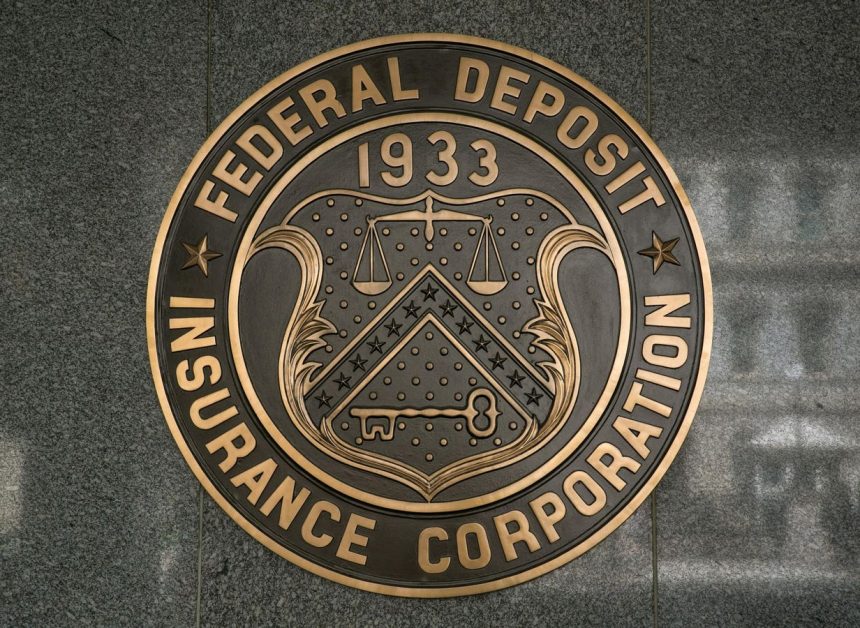The FDIC has issued a new warning to consumers about using neobanks and fintech companies for banking. Specifically referring to third-party banking apps and nonbank companies that offer banking services, the FDIC says “you may want to be particularly careful about where you place your funds, especially money you rely on to meet your regular day-to-day living expenses.”
This warning comes as a Fintech banking crisis has left millions of Americans unable to access their funds due to do the shutdown of a software provider that acted as a middleman between banking services and real banks.
For Americans who rely on banking apps, this warning should serve as a reminder that for FDIC protection to be in effect, certain criteria must be met and even if your funds are protected, there may be a very long process before you actrually get your money.
What Are Neobanks Or Fintech Companies?
In the last decade, non-bank financial companies have emerged as a popular option for consumers. These are technology driven companies that sometimes partner with traditional banks to offer banking services.
According to Forbes, some of the largest baking Fintech companies include Chime and Revolut.
Chime, for example, has a disclaimer that states, “Chime® is a financial technology company, not a bank. Banking services are provided by The Bancorp Bank, N.A. or Stride Bank, N.A., Members FDIC.”
PayPal, for example, is a money transfer service. It’s not a bank, but it does use partner banks for some of its banking-related services. It’s disclaimer states, “PayPal is not a bank and does not itself take deposits. You will not receive any interest, credit, or other earnings on the funds are placed in one or more FDIC insured Program Banks where they are eligible for FDIC pass-through insurance up to applicable limits, only if you have opened a PayPal Debit Card account, have enrolled in Direct Deposit, or have bought or received cryptocurrency with your PayPal Balance account. FDIC insurance does not protect you against the failure of PayPal.”
Given that these services and tools are popular, millions of Americans are using them for their banking needs. But they may not be insured or protected like millions of Americans presume.
What Prompted This Warning From The FDIC?
This warning comes from the collapse of financial services provider Synapse Financial. Synapse provided a service connecting popular banking apps like Yotta and Copper to real banks, such as Evolve Bank and Trust.
However, Synapse declared bankruptcy in April 2024, and by May disruptions were already taking place. In early May, Evolve disconnected themselves from Synapse, citing issues with the recordkeeping and other discrepancies. This major change caused millions of users to see their money locked up.
Since the troubles with Synapse started, several banks and firms, such as popular teen banking app Copper, have already shut down.
Yotta is the largest banking service that is impacted, with over $100 million in customer funds across hundreds of thousands of accounts being locked up.
The result for consumers is desperation. If you browse the Yotta sub-Reddit, you can read story after story of families facing financial struggles.
Many are hoping that regulators like the FDIC or Federal Reserve will directly step-in, but this latest warning from the FDIC gives little hope.
How Consumers Can Protect Themselves
The FDIC is reminding consumers that they are only directly protected by FDIC insurance coverage if they have their own deposits at an FDIC-insured institution.
According to their statement:
To determine whether you are dealing with an FDIC-insured bank and check whether the URL is in the FDIC’s records, you can use our BankFind tool. Because many FDIC-insured banks have provided URLs for their websites, if a website is listed in the FDIC’s records then you can be more confident that it is run by a bank. You can also contact the FDIC at 877-ASK-FDIC (877-275-3342) from 8:00 am to 6:00 pm ET Monday through Friday, or 8:00 am to 1:00 pm ET Saturday.
It’s also important to note that credit unions carry the same protections as banks, however it’s offered through a different entity, the National Credit Union Association (NCUA). Consumers can use the Credit Union Locator tool to ensure that a credit union is insured.
Read the full article here
















